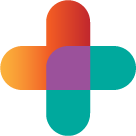Can Mobile Health Apps Really Improve Patient Care?
TABLE OF CONTENTS
I. What Are Mobile Health Apps?
Mobile health apps are designed for smart devices to monitor patient health, establish communication between a patient and their healthcare provider, and/or help keep track of health data. Some mobile health apps work in tandem with wearable devices such as smart watches that track heart or glucometers worn by diabetics, while others rely on patients to input data and track their activity.
II. How Are Mobile Health Apps Being Used?
Mobile health apps are being used in a variety of ways. The most popular use types include:
- Telehealth apps: For people who want to set up a virtual doctor visit or consultation, there are various apps to put you directly in touch with live doctors in minutes. Some are for general visits such as if you feel sick or have a minor injury, while others are for specific types of care, everything from therapy to an orthopedic consult.
- Healthcare history management: Some apps let patients keep their electronic health records all in one place, as well as keep track of communications with doctors.
- Fitness and nutrition apps: These types of mobile health apps let patients monitor their exercise, activity and food choices, may let users set alerts and reminders to stay motivated, and can add a community element for more encouragement. Some of these apps are also connected to fitness trackers, which may do additional monitoring of things like heart rate, sleep, breathing, and more.
- Medication apps: For people who take multiple medications, these apps are designed to offer reminders so patients stay on track. They may also offer drug interaction warnings and allow you to set multiple notifications or alarms throughout the day.
- Meditation and relaxation apps: These are popular for people with stress, anxiety or depression, or for anyone who wants to find some focus throughout their day. They may offer calming music, stories, and motivational reflections, along with deep breathing exercises.
- Diabetes apps: For people with diabetes, there are many helpful apps to help manage diet, count carbs, monitor glucose levels, and identify blood sugar trends.
In addition to the above, you can find health apps that focus on many other aspects of health, from women’s health like pregnancy and menstrual cycle trackers, to specific disease management like COVID-19, and more.
III. Have Mobile Health Apps Improved Patient Care?
“Mobile and telehealth are growing rapidly, and with them the opportunities for people to manage their healthcare from their phones and other devices,” says Sarah Johnson, an RN and the healthcare ambassador for Family Assets , an eldercare and senior living resource for older adults and caregivers.
At the most basic level, the benefit of mobile health apps is keeping the lines of communication between patients and doctors open. But they are also opening up a world of possibility in terms of empowering people and their physicians with lots of health insights and data.
“Remote patient monitoring, for instance, allows patients to stay in remote contact with healthcare providers using things like mobile-integrated pulse oximeters, wireless blood pressure cuffs and glucose meters, all feeding vital health and disease management information to primary care providers,” says Johnson.
“During the COVID-19 pandemic, when hospitals and care facilities were full, many incorporated the use of remote patient monitoring to track and treat patients at home,” says Susy Salvo-Wendt, Summit Healthcare telehealth specialist. “Moving forward, we expect the use of mobile health apps that include remote patient monitoring will be an integral part of providing value based patient care.”
As mobile health apps become more advanced and adopted by more healthcare professionals and patients, they can serve as an extension of the office visit. They can keep everyone in the loop as far as patient activity levels, symptoms and vital sign trends, and behaviors, beyond what might be able to be discovered in a 15-minute visit a couple of times per year.
On the patient side, those who use health apps regularly can stay better in tune with their own health and may be more apt to follow treatment plans. Similar to how patients are encouraged to keep a health diary or journal to track symptoms, mobile apps can serve as a digital assistant while providing an easy way to share that data directly with their physicians to improve diagnoses.
IV. Expert
OnlineDoctor.com interviewed this expert for article guidance:
Sarah Johnson, RN, healthcare ambassador for Family Assets, an eldercare and senior living resource for older adults and caregivers.

